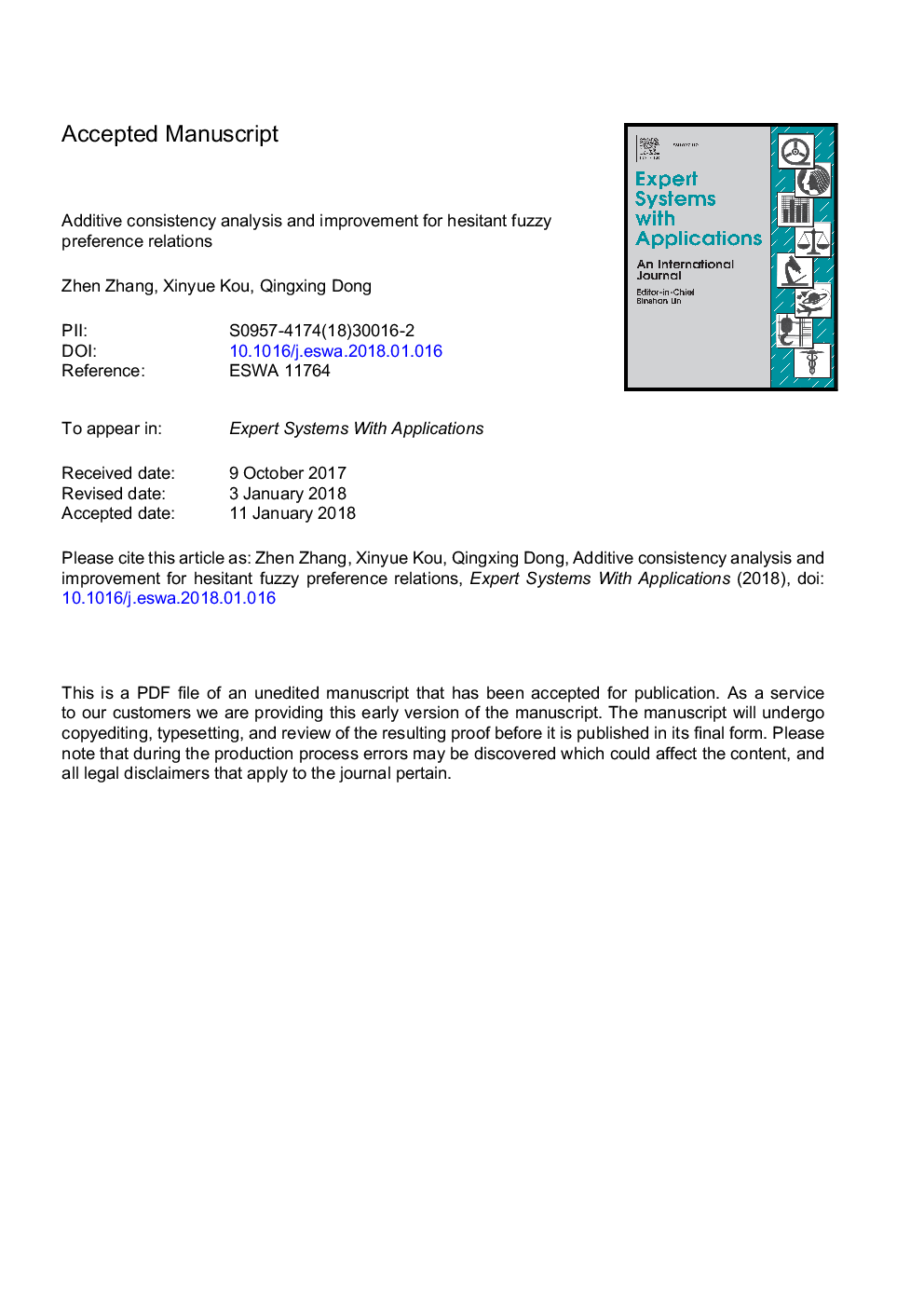| Article ID | Journal | Published Year | Pages | File Type |
|---|---|---|---|---|
| 6855163 | Expert Systems with Applications | 2018 | 29 Pages |
Abstract
Hesitant fuzzy preference relation (HFPR) is an effective tool to elicit decision makers' hesitant preference information over alternatives, and consistency analysis is of great importance for an HFPR since inconsistent judgments may result in unreasonable results. In this paper, the best additive consistency index, the worst additive consistency index and the average additive consistency index are defined to measure the consistency level of an HFPR. To improve the additive consistency of an HFPR, some mixed 0-1 linear programming models which aim to minimize the overall adjustment amount and the number of the elements that need to be adjusted are established. Moreover, the proposed models are extended to improve the additive consistency and impute the missing elements for incomplete HFPRs. Some numerical examples are presented to show the characteristics of the proposed models. The results demonstrate that the proposed models can improve the consistency of an HFPR effectively.
Related Topics
Physical Sciences and Engineering
Computer Science
Artificial Intelligence
Authors
Zhen Zhang, Xinyue Kou, Qingxing Dong,
